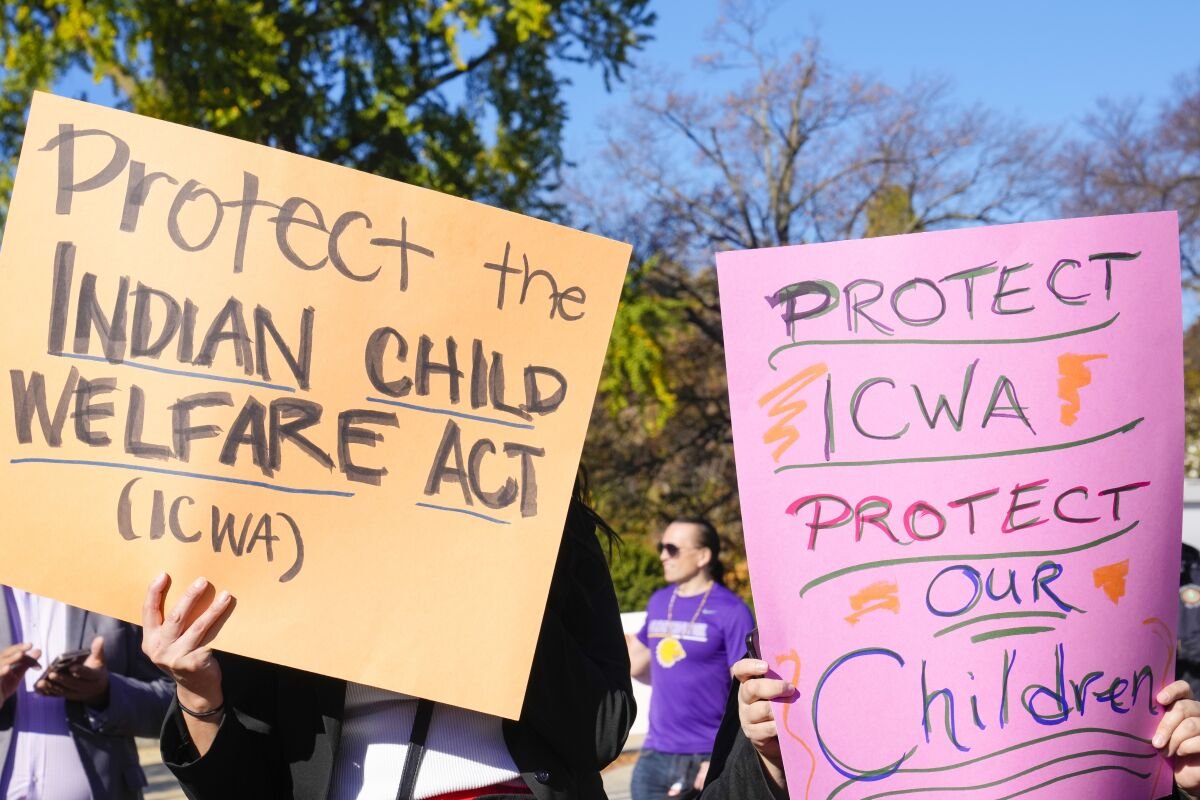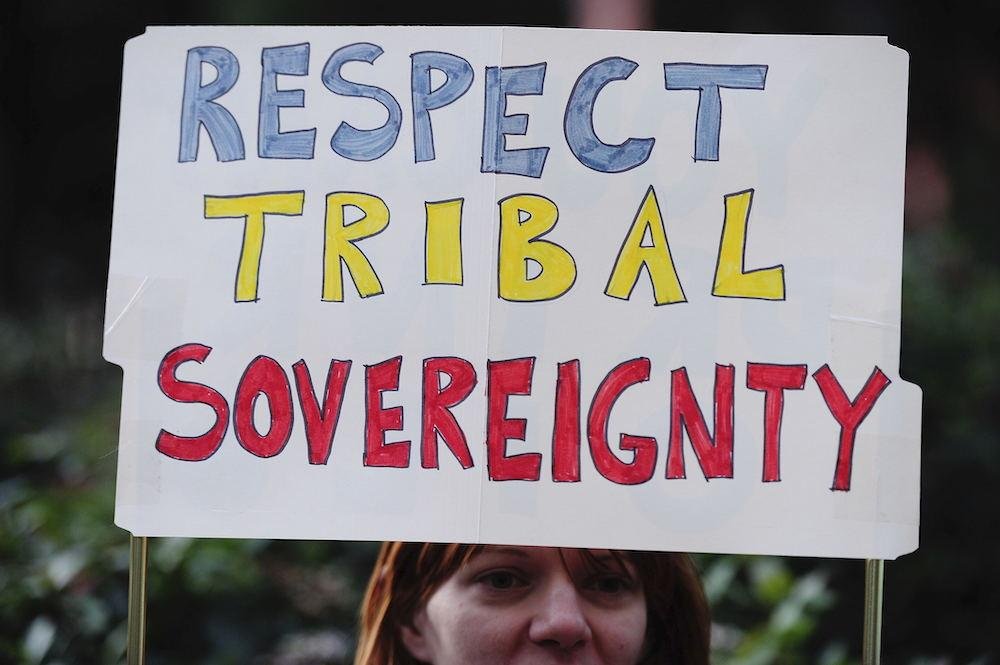What the Supreme Court Decision Upholding the Indian Child Welfare Act Did Not Decide
By Jerry Hartman, Foundation President and Board Chair
The Supreme Court decided on June 15, 2023, in Haaland v. Brackkeen that the Indian Child Welfare Act ("ICWA") passed in 1978 was constitutional and that its terms should be upheld. That statute which governs state court adoptions and foster care proceedings involving Native American children aims to keep Native American children connected to Native American families. This case was discussed earlier in 2022 in a Perspectives piece appearing on the Foundation’s website entitled Five Civil Rights Supreme Court Cases to Watch This Term which considered whether the decision could have broad implications with respect to tribal political autonomy. The legal underpinnings of the decision are not discussed here. Rather, what is addressed is what the majority opinion by Justice Barrett did not decide: the equal protection challenge to the Act and its concomitant implications.
Before turning to that, it should be noted that the earlier Perspectives piece wondered if there would be enough votes by the Justices to uphold the Act. Surprisingly, four conservative Justices (Roberts, Kavanaugh, Gorsuch, and Barrett) joined the three liberal justices (Kagan, Sotomayor, and Jackson). Justice Gorsuch wrote a long concurrence setting forth the long history of government policies and prior Supreme Court decisions that led to the adoption of the Indian Child Welfare Act. He summed up his concurrence by stating that the Constitution promises Indians their sovereignty by divesting States of authority over Native American affairs and by giving the federal government significant but limited and enumerative powers to secure the right of Native parents to raise their families as they please and the right of Native American children to grow in their culture. Anyone interested in reading about the plight of Native Americans should read his concurrence.
Photo Credit: Darren Thompson
Not unexpectedly, Justices Alito and Thomas dissented. Justice Thomas wrote that the Act was unconstitutional because the federal government lacks a general police power to regulate state family law and the majority's opinion incorrectly held that because Congress possesses plenary power over Native American affairs it could do so. Justice Alito in his dissent states that decisions about child custody, foster care, and adoption are "core state functions" which have as their paramount concern the best interests of children. Congressional decisions, he wrote, subordinating what state family court judges and biological parents believe can conflict with the best interest of a child.
Justice Kavanaugh's concurrence reiterates the majority's holding that it did not decide the equal protection issue that can arise when the Act is applied to individual foster care or adoption proceedings because none of the parties had standing to raise the issue. Race is an issue under the statute, Justice Kavanaugh said, because race can be determinative either because a particular adoption or foster care placement can be denied because of the child's race or because of the race of the prospective parent.
The majority said that neither petitioner, the individual parties or the State of Texas, had standing to show that their injury is traceable to the federal government's conduct or could be addressed by the relief the petitioners requested because it is the state courts that apply the placement preferences and the state agencies that carry out the court-ordered placements. Furthermore, the Court said that Texas has no equal protection rights of its own and cannot assert equal protection claims on behalf of its citizens.
Of course, this denial by the Court to address the race issue at the center of the ICWA leaves the question for a future decision but also opens the door, possibly, for the Court to consider the federal government's authority to limit Native American sovereignty, which would have broad implications for Native American tribes.
Such concerns about tribal sovereignty would be well-founded given the history of the federal government's policy of "termination" which was a series of laws dating back to the late 1940's until the mid-1960's that restricted or eliminated tribal sovereignty in favor of integration into the rest of American society. That policy ended the federal government's recognition of the sovereignty of tribes and trusteeship over reservations. The Senate and the House of Representatives in 1953 in a Concurrent Resolution had announced the official federal policy of termination which was not reversed until 1970 in a statement by President Nixon and then again by President Reagan in 1983.
Recently, Ada Deer died at age 88. She worked tirelessly since the 1960’s to end that policy and restore the sovereignty of her Menominee tribe in Wisconsin that lost its sovereignty in 1961 that resulted in ending their lifeline of federal financial support. Her efforts of many years resulted in President Nixon signing the Menomonee Restoration Act of 1973 that restored the tribe's sovereignty. She became the tribe's first chairwoman and later the Assistant Secretary of the Interior in charge of the Bureau of Indian Affairs in the Clinton Administration.
Barbara McDowell, the namesake of the Foundation, had an abiding and continuing interest in the protection of the rights of Native Americans. While in the Solicitor General's office, she argued in the Supreme Court on behalf of the United States Minnesota v. Mille Lacs Band of Chippewa Indians (1999) where the Court upheld the Tribe's retention of hunting, fishing, and gathering rights guaranteed to them in an 1837 treaty. The state of Minnesota argued unsuccessfully that an Executive Order from 1850 removing the Tribe from that land abrogated those rights. To prepare for her argument, Barbara traveled to Minnesota to meet with the Tribe. She smoked a peace pipe at dawn with leaders of the Tribe who had gathered at the shores of a lake on the Tribe’s land to pray for her success in her argument.
The issue of race was not pertinent to the decision in The Mille Lacs Band case, but it did address Congressional authority stating that "[u]nder the Constitution, Congress has plenary authority over Indian affairs." A subsequent decision concerning the question of race under the ICWA will likely address the question of Native American sovereignty within the meaning of that plenary authority. Certainly, it will be very interesting to see how the Court, when that future case arises, will square its decision with Students for Fair Admission v. Harvard where Justice Roberts said, in his opinion for the majority which ended race-based affirmative action in college admissions, that “Eliminating racial discrimination means eliminating all of it.”
To listen to Barbara McDowell’s oral arguments before the Supreme Court and read the associated Supreme Court decisions, click below.




